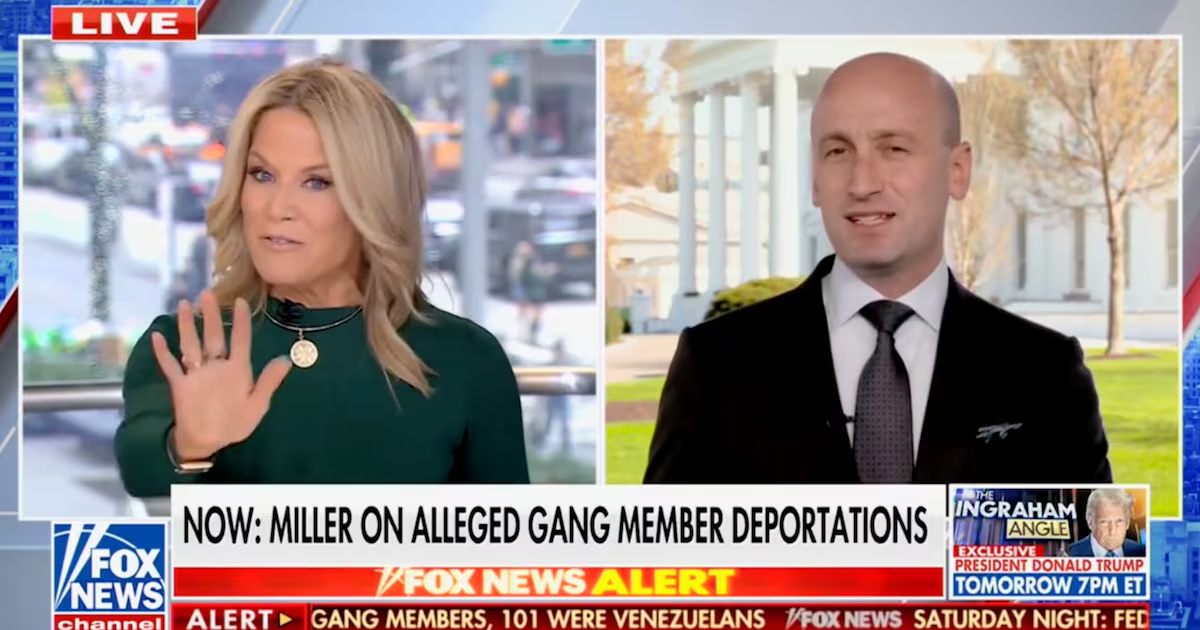President Donald Trump’s “Executive Order on Promoting Free Speech and Religious Liberty” is the triumph of fake news.
The order does not allow greater discrimination against LGBT people by those with a religious excuse. That absence speaks volumes, and may well portend a significant transformation in LGBT equality.
But what the order does do is solves two problems that simply do not exist.
First, the order effectively nullifies the 1954 law called the Johnson Amendment, by directing the IRS to not enforce it. The law forbids all tax-exempt nonprofit organizations, including churches, from engaging in political campaigns, endorse candidates, or collect contributions to a political campaign.
According to the Christian Right’s fake news machine, this common-sense law has muzzled the free speech rights of pastors, who can’t say anything political from the pulpit. Actually, that’s not true at all. Pastors can (and do) still talk politics, they just can’t overtly endorse a candidate. And remember, the law actually applies to all nonprofits, not just churches. This non-issue is just hysteria-mongering among national Christian Right organizations, designed to gin up outrage – and to allow them, not churches, to endorse political candidates.
Oh and guess what: the IRS hasn’t been enforcing the Johnson Amendment against pastors anyway. Since 2008, they’ve only audited one — one — pastor for violating the law, and even he wasn’t punished. And during that time, the “religious liberty” group Alliance Defending Freedom has been promoting “Pulpit Freedom Sundays,” encouraging pastors to openly break the law. Trump’s order changes nothing.
The second nothing-burger in the order provides “regulatory relief” to organizations “persecuted” by Obamacare. Here again, the effect is effectively nil. Churches and religious organizations already have a blanket exemption from the ACA, including its much-hated requirement that insurance plans include contraception coverage.
Believe it or not, the organization the administration name-checked, a tiny monastic order called the Little Sisters of the Poor, have spent years arguing that merely exercising that exemption is a form of persecution. Their “religious liberty” is supposedly infringed upon by checking a box on a form, saying “No, we won’t provide insurance,” and getting on with their lives.
That’s the “persecution” today’s order addresses. And, needless to say, it hardly matters at all if the Affordable Care Act is repealed, as now once again seems possible.
In sum, today’s executive order isn’t about persecution—it’s about perception. Specifically, the feeling among many Christians that, as the White House tweet proclaimed:
To an outsider, the fact that Christians feel persecuted is laughable. Just how fragile are these snowflakes, anyway?
But as someone who’s researched and reported on this community for decades, I can tell you the perception is real – and not new. For conservative Christians, it’s been five minutes to midnight for two centuries now. There’s always been some lost golden age in America, when everyone prayed and the Christian Nation was at peace. That’s nonsense, of course: in fact, Christians have always complained that the golden age is lost. But it’s a powerful narrative, and resonates with longstanding Christian martyr narratives and end-times teachings. Remember, over three-quarters of U.S. Evangelicals believe the rapture will happen in their lifetimes. And not because things are good.
What is new is how these profound fears have been manipulated by politicians and political actors like the Alliance Defending Freedom. A whole cottage industry exists to convince Christians that religious freedom is under attack and that Christians are being persecuted by their government. Tyranny is only one generation away, they say (misquoting Ronald Reagan).
Now, with Christian conservatives having put Trump in office – they were the largest of his voting blocs, far larger than the “deplorables” and larger still than mainstream Republicans – these fantasies have replaced reality. And so we are treated to a postmodern spectacle in which a president signs an order doing nothing to address a crisis that does not exist.
Preceded, of course, by the whitest Christian musician imaginable, Stephen Curtis Chapman, singing the Lord’s Prayer on the White House Lawn. Because Christians are being persecuted in America.
This doesn’t mean that today’s order won’t have harmful effects.
First, it instantly changes the game for religious nonprofits, enabling them to become major political players (and donors). Arguably, this violates the Constitution, because religious nonprofits would be favored over non-religious ones. But while the inevitable litigation plays out, religious nonprofits win big. They just became some of the biggest power players inside the Beltway.
Second, effectively repealing the Johnson Amendment will pressure religious leaders to take more overt political stances – which is why grassroots pastors have so opposed it. Ironically, a 2016 Pew Research Center study showed that black churchgoers were more likely to have heard their pastors preach politics than white ones—and presumably that means Democrat-leaning politics.
Third, the generalities of the executive order do set an overall pro-religion orientation that will filter down into a myriad of smaller policies across executive departments, from limits on proselytizing on federal property to nearly invisible tax policies. These would have been implemented anyway, but the executive order elevates their importance. And symbolic gestures themselves do have an impact.
There are, however, two silver linings for progressives—or better, two sides of a coin.
First, of course, is what the order did not do. It did not implement the “First Amendment Defense Act” and give government employees like Kim Davis the power to discriminate against LGBT people. It did not allow corporations to refuse to extend healthcare to same-sex partners of employees. It did not implement a national version of Mike Pence’s Indiana “religious freedom law.”
Second, by perhaps mollifying or defanging the Christian Right’s fake news outrage machine, the executive order might prove to be helpful. The order knocked out two of its non-crisis crises, and set a clear tone. It would be preposterous to claim, now, that religious freedom is under attack.
The combination of these two steps – absence of substance, presence of rhetoric—may well represent a significant evolution in the status of LGBT equality. It’s almost as if Trump (or his children) said to the Christian Right, you can have anything you want, but leave the gays alone. Whether out of principle or public relations, the Trump administration opted not to go after LGBT people on this round, and that is enormously significant.
Now, if the Christian Right wants to attack LGBTs, they’ll have to do so directly—not under the banner of “religious liberty.” And if that holds, it will be a huge political transformation, far more important than any substantive changes resulting from today’s executive order. Trump might’ve just knocked the Christian Right’s legs out from under them.
Of course, the Alliance Defending Freedom and others will continue to fight; they’re not mollified at all. But if Trump’s separation of religious liberty from LGBT issues actually holds, the biggest winners today might just be gay and trans people trying to live their lives.





